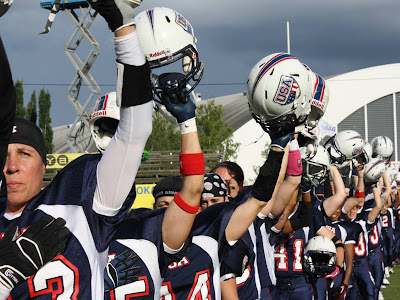
I can’t stop thinking about “Orange Is the New Black,” because – duh – it’s awesome. Plus, dude, Laura Prepon. But it’s also because the show is so different from anything on our TV radar right now. And one of those ways is in its brilliant, brilliant diversity.
Some shows feature mostly white casts with one or two tokens thrown in for appearances. Others feature diverse casts, but that diversity is never addressed other than as a pleasant, unspoken rainbow coalition. But “Orange Is the New Black” takes the forced integration of a former NPR-listening, artisanal soap making, Seven Sisters-educated white woman and makes it its guiding principal.
Still this is also so much more than just a fish-out-of-water story. Upper-class white woman who goes to prison faces horrors and hilarity interacting with the diverse prison population. Sure, we see some of that – especially at first. But then Orange peals back the top layer – the stereotypes and the clichés and assumptions – to show us the soft, fragile center of almost everyone underneath. And that, in and of itself, is extraordinary.
Minority characters – and female characters – are far too often a means to an end in storytelling. The sassy best friend. The street-smart co-worker. The hot lust object. They’re not fully realized people, and were never meant to be. “Orange Is the New Black” could have done that with its diverse cast. Miss Claudette is the sage. Taystee is the comic relief. Diaz is the cautionary tale. And while they have those elements to their characters, they’re much more complex than that. It’s that essential humanity that is so often lacking. People of color become a concept, not an actual person. But not here. Here they’re all real and interesting, flawed and so very human.
The key is that these women are the heroes (and villains) of their own stories. They are not just amusing anecdotes meant to add color to the main character’s life. We know this because most of the time Piper isn’t even aware of their histories – how they got there, what’s happening now. Their backstories are just theirs and ours to know and understand. So these women have their own agency, their own agendas, their own struggles, their own triumphs, their own failures. This matters.

I’m so glad we know more about these women. And I want to learn more; I want to learn everything. Think of the character arc of someone like Crazy Eyes, played by the delightful Uzo Aduba. She begins as a joke, a quick scary-lesbians-in-prison punchline complete with unwanted dispersing of bodily fluids. But then, as we get to know her, she develops organically into a Shakespeare-spouting thespian with an unexpected family. So when Piper’s initial descriptions of her as retold by Larry (ugh, Larry) hurts her it hurts us, too. Not just because of the inherent cruelty in her thoughtless words, but because of the ignorance those first impressions convey. We are all more than our first impression, our stereotypes, our preconceived notions of what we should be. We all deserve to be seen as such.
Or take Sophia, glorious Sophia. As played by real-life transgender actress Laverne Cox, she is a powerful reminder that stories, at their best, change how we view the world. You can’t watch Sophia’s story and say you don’t have a better (not complete, by any means, but better) understanding of trans people’s lives and challenges. It’s a performance, among many on the show, Emmy voters would be wise to take note of next summer. Also, I’d love for Sophia to have a relationship next season, preferably with another woman. I mean if we’re asking for favors from the TV gods, why not be thorough?

I’ve found myself thinking about “Orange Is the New Black” long after finishing the series because the series gave me so much to think about. White privilege, racial separatism, cultural elitism. All these issues get thrown into a place they can’t run from each others because literal bars are holding them back. But in the end we don’t feel imprisoned by their experiences, we feel released. Life is so much richer when we’re given stories that treat everyone’s lives as different, important and real.
p.s. Also, fucking hell, are these ladies funny.






















































